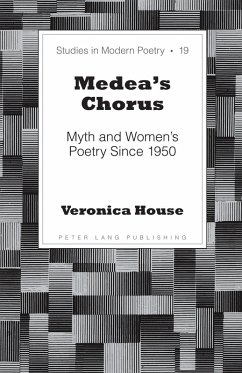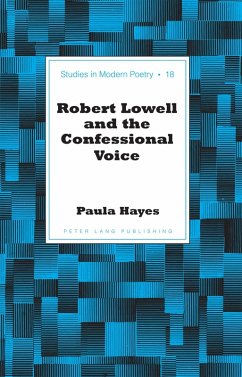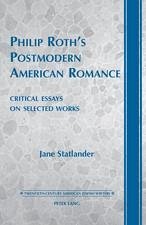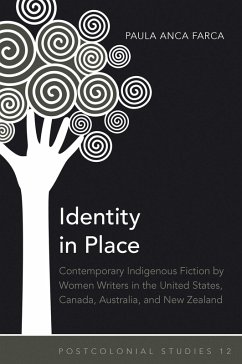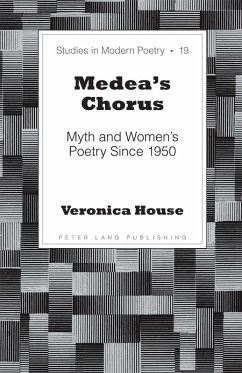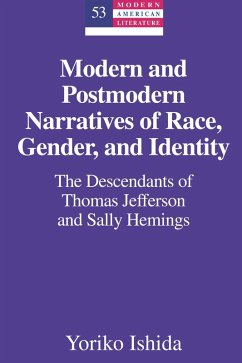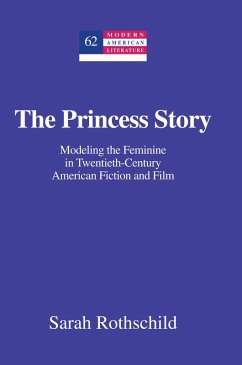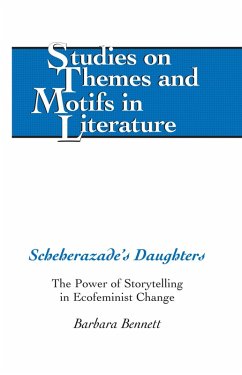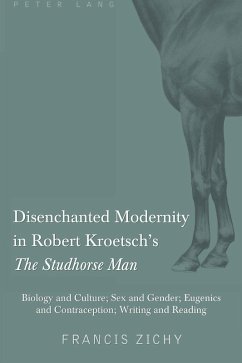
Poets' First and Last Books in Dialogue (eBook, PDF)
Versandkostenfrei!
Sofort per Download lieferbar
Statt: 84,50 €**
61,95 €
inkl. MwSt.
**Preis der gedruckten Ausgabe (Gebundenes Buch)
Alle Infos zum eBook verschenkenWeitere Ausgaben:

PAYBACK Punkte
31 °P sammeln!
A poet's oeuvre is typically studied as an arc from the first work to the last work, including everything in between as a manifestation of some advance or reversal. What if the primary relationship in a poet's oeuvre is actually between the first and last text, with those two texts sharing a compelling private language? What if, read separately from the other work, the first and last books reveal some new phenomenon about both the struggles and the achievement of the poet? Drawing on phenomenological and intertextual theories from Ladislaus Boros, Julia Kristeva, Theodor Adorno, and Peter Gal...
A poet's oeuvre is typically studied as an arc from the first work to the last work, including everything in between as a manifestation of some advance or reversal. What if the primary relationship in a poet's oeuvre is actually between the first and last text, with those two texts sharing a compelling private language? What if, read separately from the other work, the first and last books reveal some new phenomenon about both the struggles and the achievement of the poet?
Drawing on phenomenological and intertextual theories from Ladislaus Boros, Julia Kristeva, Theodor Adorno, and Peter Galison, Poets' First and Last Books in Dialogue examines the relevant texts of Robert Lowell, Elizabeth Bishop, Anne Sexton, Thom Gunn, Sylvia Plath, and Ted Hughes. In each of these poets' first books, Thomas Simmons examines both the evidence of some new phenomenon and a limit or unsolved problem that finds its resolution only in a specific conversation with the final text. By placing the texts in dialogue, Simmons unveils a new internal language in the work of these groundbreaking poets. The character of this illumination expands in a coda on Robert Pinsky, whose career is particularly marked by what neurologist Antonio Damasio calls the moment of «stepping into the light.»
Drawing on phenomenological and intertextual theories from Ladislaus Boros, Julia Kristeva, Theodor Adorno, and Peter Galison, Poets' First and Last Books in Dialogue examines the relevant texts of Robert Lowell, Elizabeth Bishop, Anne Sexton, Thom Gunn, Sylvia Plath, and Ted Hughes. In each of these poets' first books, Thomas Simmons examines both the evidence of some new phenomenon and a limit or unsolved problem that finds its resolution only in a specific conversation with the final text. By placing the texts in dialogue, Simmons unveils a new internal language in the work of these groundbreaking poets. The character of this illumination expands in a coda on Robert Pinsky, whose career is particularly marked by what neurologist Antonio Damasio calls the moment of «stepping into the light.»
Dieser Download kann aus rechtlichen Gründen nur mit Rechnungsadresse in A, B, BG, CY, CZ, D, DK, EW, E, FIN, F, GR, HR, H, IRL, I, LT, L, LR, M, NL, PL, P, R, S, SLO, SK ausgeliefert werden.




